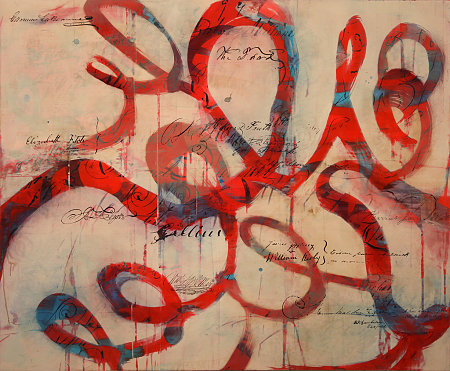
A Chance Conversation
Lately, I have been trying to think through the idea of contingency. By contingency, I mean the causal dependence of one event upon another, which leads us to the related idea of chance—the chance of something happening versus the chance of nothing or of anything else happening. An essay of the sort you are reading, written by someone who is not a household name and submitted “over the transom,” has less than one chance in twenty of being accepted by a magazine, according to my experience. I don’t know what the chances are of your picking up this particular issue and reading this particular essay, but it seems like a very small chance that you and I met like this.
And yet it is in the nature of historical contingency that it bears the appearance of inevitability. The careers of great military leaders offer good examples. Take Horatio Nelson. To reach the pinnacle of military success he occupied at the time he was shot down at the Battle of Trafalgar, Nelson had to have survived previous battles in which he showed the same disdain for danger by exposing himself to enemy fire. Moreover, he had to have been successful each time he was in charge, and success in such endeavors does not always depend on superior forces or ability. His rivals in the British Navy had, meanwhile, to be less conspicuously successful. Nelson had only one eye and one arm left by the time of Trafalgar, and he was a walking illustration of how lucky he was to be alive, let alone to have prevailed so often. Yet we have the impression in reading his story that Nelson willed himself to greatness. Well, in a sense he did, but it was chance and contingency that ensured that his willfulness was not cut off, with his life, along the way.
A fictional character like Iago seems to have an inevitability about him—to be unstoppable—while in fact it is precisely because he runs a moment-by-moment danger of being destroyed that his character is so fascinating. Alexandre Dumas says of his delightfully villainous Milady de Winter, “Great criminals bear about them a kind of predestination which makes them surmount all obstacles, which makes them escape all dangers, up to the moment which a wearied Providence has marked as the rock of their impious fortunes.” But it is not predestination; it is a willingness to court every dangerous chance and a series of such chances coming up favorably until the last inevitable one goes the wrong way. At which point we say that Providence grew tired of our villain.
*
I have trouble getting my head around certain aspects of chance, especially the harsher parts: One could have never been at all; one could cease being at any instant. That third-person construction in the last two clauses is a clue to how tender the thought is of not-being. What I avoided writing was that there could just as easily never have been me; at any instant there could cease to be me. Because I know that it can be hard to think about such matters, I have always liked writers who tackled the difficulties of chance and contingency. Those who do so can even be imagined as in a conversation with one another.
The easier idea is that of death: We will all at some unknowable time cease existing. Children learn about death, and they begin to think that their parents might die—a frightening thought—and that they themselves might die—a thought probably more puzzling than scary at first. Eventually, they understand that every living thing dies.
Virginia Woolf is the writer who seems to me to have most successfully tackled the issue of what happens when the human presence suddenly becomes an absence. In one of her early books, Jacob’s Room, even though Jacob appears in the book—as a child, as an undergraduate, as a young man—and even though we read his thoughts occasionally, the book is really about the room Jacob takes up in other people’s consciousness. He is pictured as he is thought of by others, some of them strangers: “One must do the best one can with her report,” Woolf writes of a woman who sees him only in the train down to Cambridge and never again.
